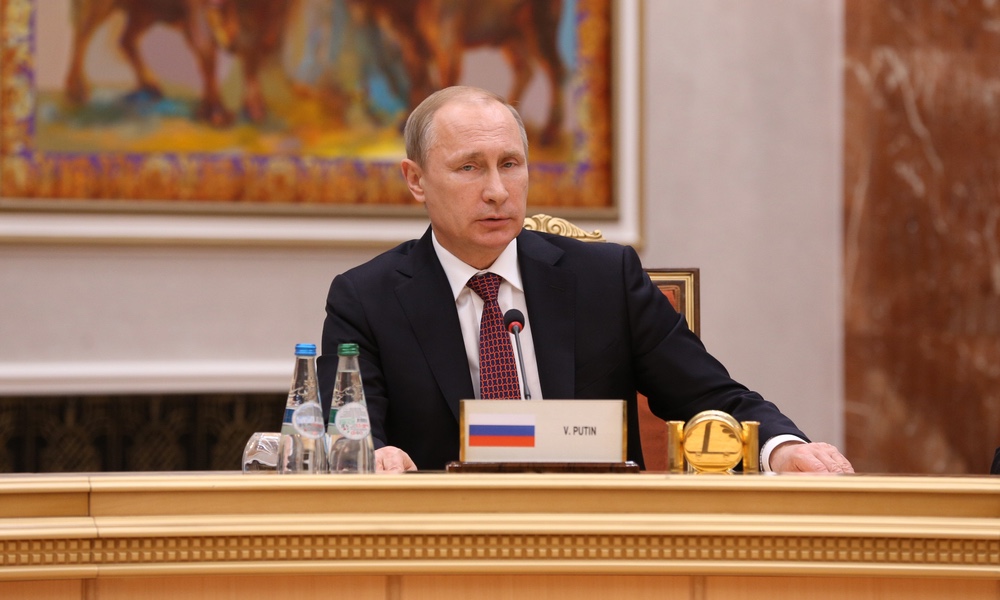Apple Could Be Forced to Pre-Install Russian Apps on Some iPhones
 Credit: Drop of Light / Shutterstock
Credit: Drop of Light / Shutterstock
Toggle Dark Mode
Apple may not have to worry much longer about being forced to list Crimea as part of Russia, since a new law that’s just been passed in Russia could see Apple make an exit from the country entirely.
According to Reuters, Russian President Vladimir Putin signed legislation earlier this week that would require all app-enabled electronics sold in Russia to come with Russian software pre-installed.
This would naturally include smartphones and computers as well as devices like smart TV sets, tablets, and wearables.
The new law, which is expected to come into force on July 1, 2020, is ostensibly an “affirmative action” move intended to give Russian software developers a leg up in competing with foreign companies such as Apple, Samsung, and Huawei, as well to make it easier for Russian consumers to start using their new devices right away without having to download Russian apps. Some opponents of the law, however, have expressed concern that it could also be used as a means of planting government spyware on citizens’ devices.
The new legislation isn’t simply a blanket requirement that a certain percentage of Russian apps be pre-installed, but will actually include a list of specific Russian apps that must be included in order for the devices to be sold in the country. The list of apps has yet to be drawn up.
‘Equivalent to Jailbreaking’
Electronics retailers in Russia have already been criticizing the new law, saying that it was adopted arbitrarily without any consultation, and while most tech companies haven’t yet commented on the legislation, an unnamed source within Apple told the Kommersant business daily that such a law would be “equivalent to jailbreaking.”
A mandate to add third-party applications to Apple’s ecosystem would be equivalent to jailbreaking. It would pose a security threat, and the company cannot tolerate that kind of risk.
Apple has previously threatened to pull out of Russia entirely if such a law resulted in a complete ban on selling its products without pre-installing Russian apps, and this is one area in which it seems very likely that Apple would rather leave Russia behind than accede to demands like this that would change the fundamental nature of how it packages its products.
One of the things that made the iPhone unique from the very beginning was that Apple showed no quarter in insisting that the iPhone experience be a clean set of first-party Apple applications, regardless of what carrier an iPhone was purchased on, or what country it was purchased in. This remains in stark contrast even today to many other smartphone manufacturers, where carrier-specific apps are commonplace.
An exit from Russia by Apple would also solve some of the recent controversy regarding disputed borders, where Apple was forced by Russian law to list the disputed territory of Crimea as part of Russia, despite the fact that the rest of the world sees things differently. However, in a move that some have dubbed “regionalization of facts,” its only on iPhones sold or operating within Russia that Crimea appears as part of Russian territory; outside of Russia, Crimea remains listed as its own territory, as it was before Apple capitulated to Russian demands. Of course, since Apple is only being forced to rewrite geography on iPhones inside Russian borders, simply leaving the country would render the entire issue a moot point.
In recent years, Russia has been cracking down on its internet laws, and appears to be taking at least some of its cues from China’s highly oppressive regime, requiring search engines to delete search results, insisting the encryption keys for messaging services be shared with government agencies, and requiring social networks to store user data on servers in the country. Unlike China, however, which is a market that Apple can’t afford to lose, both in terms of its iPhone customer base and its manufacturing interests, Apple has far less at stake in Russia, so there’s far less incentive for Apple to continue doing business in Russia, especially if the government begins placing unrealistic demands on the iPhone maker.






